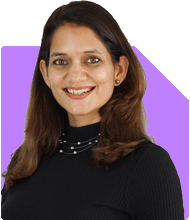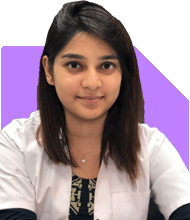Dr Shakeeb Ahmed Khan |152 Answers |Ask -Follow
Physiotherapist - Answered on Mar 21, 2024
He has served as a technical consultant for the World Health Organisation, the United Nations, the Tata Institute of Social Sciences and several national and international NGOs.
Besides physiotherapy, he is keenly interested in disability management, early intervention, geriatric care and assisting children with disabilities.
Dr Khan has a bachelor's degree in physiotherapy from the Ravi Nair Physiotherapy College in Wardha, Maharashtra, a master's degree in disability rehabilitation administration from the National Institute for the Mentally Handicapped, Secunderabad, and a PhD in disability management from Bangalore University.... more

I am 56years old male body wt 96kg height 5’4” wants reduce my Billy fat .tell me how I can do it I am having high blood pressure taking tablet and thyroid also taking medicine.
You may like to see similar questions and answers below
Dr Karthiyayini Mahadevan |1145 Answers |Ask -Follow
General Physician - Answered on May 25, 2023
Namita Piparaiya | Answer |Ask -Follow
Yoga, Wellness Expert - Answered on Aug 11, 2023
Rebecca Pinto |107 Answers |Ask -Follow
Physiotherapist, Nutritionist - Answered on Feb 23, 2024
Dr Shakeeb Ahmed Khan |152 Answers |Ask -Follow
Physiotherapist - Answered on May 22, 2024
Dr Deepa Suvarna |147 Answers |Ask -Follow
Paediatrician - Answered on Apr 02, 2025
Samraat Jadhav |2248 Answers |Ask -Follow
Stock Market Expert - Answered on Apr 02, 2025
Ramalingam Kalirajan |8175 Answers |Ask -Follow
Mutual Funds, Financial Planning Expert - Answered on Apr 02, 2025
Ramalingam Kalirajan |8175 Answers |Ask -Follow
Mutual Funds, Financial Planning Expert - Answered on Apr 02, 2025
Samraat Jadhav |2248 Answers |Ask -Follow
Stock Market Expert - Answered on Apr 02, 2025
Ramalingam Kalirajan |8175 Answers |Ask -Follow
Mutual Funds, Financial Planning Expert - Answered on Apr 02, 2025
Mayank Chandel |2159 Answers |Ask -Follow
IIT-JEE, NEET-UG, SAT, CLAT, CA, CS Exam Expert - Answered on Apr 02, 2025
Mayank Chandel |2159 Answers |Ask -Follow
IIT-JEE, NEET-UG, SAT, CLAT, CA, CS Exam Expert - Answered on Apr 02, 2025
Mayank Chandel |2159 Answers |Ask -Follow
IIT-JEE, NEET-UG, SAT, CLAT, CA, CS Exam Expert - Answered on Apr 02, 2025
Mayank Chandel |2159 Answers |Ask -Follow
IIT-JEE, NEET-UG, SAT, CLAT, CA, CS Exam Expert - Answered on Apr 02, 2025



























